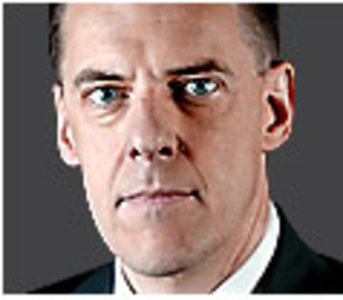VANCOUVER -- Michael Ignatieff listened impassively, his face a mask, as the man standing before him berated Israel's barbarity.
He had been in Lebanon when the war began, the man exclaimed, his voice rising in fury. The Israelis had committed unspeakable atrocities. When they withdrew they left toys booby-trapped with explosives, to maim and kill the children who picked them up.
Mr. Ignatieff certainly wanted to walk away from this nonsense. But he was mingling with the crowd at a Liberal leadership forum, part of the party's week-long caucus retreat, and this man could have influence, could be a delegate, had to be heard out.
And so Mr. Ignatieff simply repeated, carefully, his assertion that a permanent solution to the Middle East conflict had to include a secure and sovereign Lebanon and an independent and viable Palestine. For the angry man, that seemed to be enough.
Unlike its Liberal opponent, the Conservative Party of Canada is not a big-tent party. Its members, its caucus, its leader, have roughly similar world views. It was easy, even necessary, for Stephen Harper to side emphatically with Israel in the war against Hezbollah. Yesterday, Jason Kenney, the Prime Minister's parliamentary secretary, happily compared Hezbollah's role in Lebanon to that of National Socialism in Germany in the 1930s. Both had the trappings of legitimacy, he said; both were the political personification of evil.
Such unequivocal assertions sit uncomfortably with millions of Canadians - Arab, Muslim, immigrant and native-born - who see the Middle East as a miasma, in which Israel is both victim and antagonist. Some believe the Conservatives' unambiguous solidarity with Israel has undermined popular support, leaving it vulnerable to defeat in the next election.
But the Middle East is a political acid that burns all who touch it. And it is corroding unity within the Liberal caucus.
Liberal MP Borys Wrzesnewskyj got into trouble when he appeared to suggest that Hezbollah should not be considered a terrorist organization, though he later insisted he had been quoted out of context. It didn't stop leadership candidates Carolyn Bennett and Scott Brison from demanding yesterday that interim leader Bill Graham strip Mr. Wrzesnewskyj of his duties as associate foreign affairs critic.
And in the hallways outside the caucus meeting, Ignatieff loyalists pointed out that Mr. Wrzesnewskyj was a supporter of Gerard Kennedy's leadership bid, prompting Mr. Kennedy to reiterate his declaration that he considered Hezbollah terrorists.
But the truth is, Mr. Wrzesnewskyj was simply expressing a view shared by many within the Liberal caucus. That view goes something like this: Maybe Hezbollah should not be on the list of terrorist organizations; maybe it should. Regardless, there's no point now in delisting it.
But it remains a powerful presence in Lebanon and an essential partner in any lasting peace. Refusing even to talk to its leaders only frustrates that peace.
As for Israel, of course it has a right to defend itself. But in Lebanon, it went too far, and is paying the price.
Others in the Liberal caucus unequivocally support Israel, denounce Hezbollah, and demand that it abandon its terrorist ways before anyone invites it to any table. Add to that Liberal MP Wajid Khan's offer to serve as an adviser to Mr. Harper on the Middle East, and you have the makings of a spirited discussion when the subject comes up in caucus this afternoon.
These divisions are a product of the inevitable lack of discipline that attends a party in opposition, without a leader. But there's more to it than that. The Liberals are an urban, centrist, multicultural party, reflecting the view of urban, centrist, multicultural Canada. Confusion and disagreement swirl among the polyglot ethnicities that make up that environment; no wonder they swirl within the Liberal Party as well.
Clarity is bracing, and on the Middle East, as on so many other files, the Conservatives have had no qualms in providing it. But in its confusion and discord, the Liberal caucus more accurately reflects the Canadian street.
jibbitson@globeandmail.com































Laissez un commentaire Votre adresse courriel ne sera pas publiée.
Veuillez vous connecter afin de laisser un commentaire.
Aucun commentaire trouvé